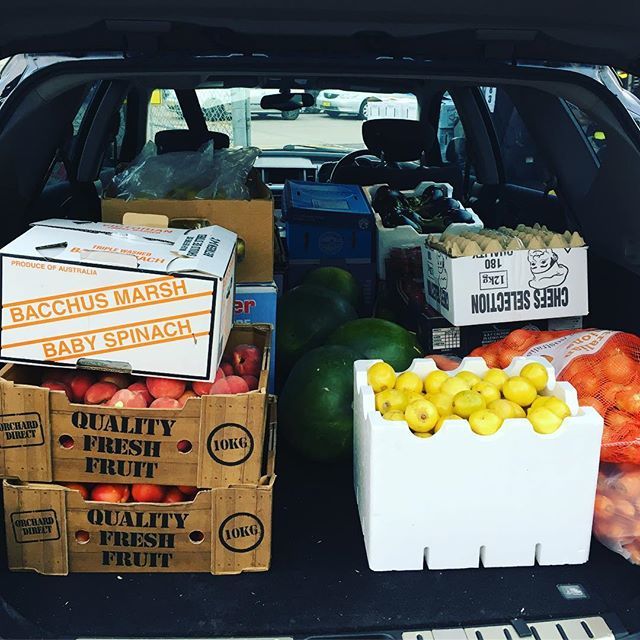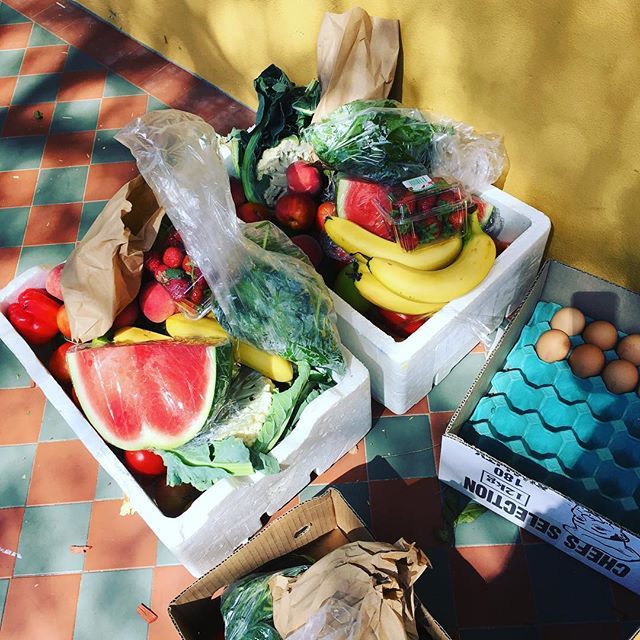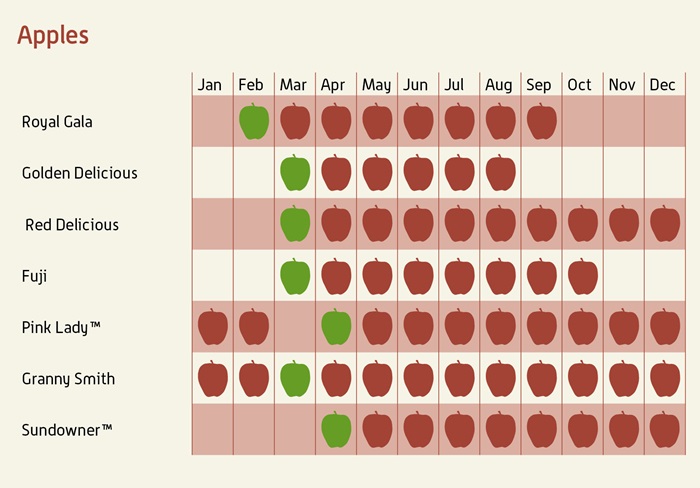The myth is that supermarkets have ‘months old’ produce, while farmer’s markets do not and therefore are fresher. This is the myth which can easily be busted.
In the real sense, possibly fresh is only possible when one has their own vegetable patch and harvests immediately before consuming. Something farmer’s markets, supermarkets or any other retailer can not achieve.
The same applies for farmer’s markets and why the above is a myth.
When a crop is ripening, it doesn’t ripen on the day or preceding days before the market. They ripen continually and farmers (including those who sell their fresh produce at farmer’s markets) will harvest their crops and store them until they have sufficient ripe produce to sell (either at a farmer’s market, to a wholesaler or direct to a retailer/supermarket). This stored could mean at a weekly farmer’s market, some of the produce could be at least 7 days old (if harvested on the same day of the market in the previous week) or more (if all the produce was not sold at the previous market and stored to be resold at the next market) - which occurs as discarding unsold produce is akin to throwing away money/farm or storeholder profits). Some of the produce could be picked on the same day of in the days immediately before the day of the market.
Some produce sold at farmer’s market (no differently to supermarkets) is stored to allowed ripening. Bananas are a good example which are picked green in the regions and are naturally or with ethylene to ripen. Any banana at a farmer’s market, unless in a banana growing area, is unlikely to be ‘farm fresh’ and not stored for some time.
Other products can be readily stored, under the right conditions for months. These include the Allium family (garlic, onions etc), potatoes (inc. sweet) and pumpkins.
Some vegetables are better stored before consumption to ensure that their potential shelf life is prolonged. This and will be before purchase (e.g. onions, garlic, pumpkins) to ensure they have matured/fried sufficiently to prevent storage spoiling. It should also be noted that these type of produce has historically been stored between seasons for many centuries…is is still done so in may developing countries.
Providing suitable weather conditions prevail, sSome are even left in the ground until the prices are satisfactory for the farmer to harvest and on sell (e.g. potatoes, onions, garlic). These in effect have been stored as the farms soils conditions has facilitated the storage.
It is not only supermarkets which have ‘tortured’ the meaning of fresh. If one goes to any retailer, farmer’s market, farm gate or supermarket and purchases produce out of season (or produce grown in another part of the country), it will have been stored for some period. This storage would have included that in transit from the farm to the place of purchase or to extend the availability of the produce.
There are many food processors/manufacturers which also use the term fresh for processed items. This has really pushed the boundaries in relation to the meaning of fresh and is ‘freshwashing’ the consumers.
I have been to many farmer’s markets in many states and are yet to see anyone that only sells locally, in season produce. These markets also contain a significant proportion of fruit and vegetables which have been grown elsewhere or been stored to prolong the seasons…such as that outlined above.
It is incorrect to think that farmer’s markets and supermarkets are vastly different. Both can have fresh produce which may be past its best eating time, can have produce in its prime and produce which is really under the weather and potentially spoiled.
My concern is that generalised statements like supermarket produce is not fresh and is one month old is incorrect. Generally, the post harvest age of supermarket produce will be not dissimilar to farmer’s markets, unless the storeholder on a farmer’s market can prove they grew the produce being sold and confirm that it was only picked within a day or two of the market. Any picking greater than this the produce will be as fresh as non-farmer market sources.
From my own experience, fresh leafy crops such as herbs and some leafy vegetables at farmer’s markets may be fresher than the supermarkets as they are more difficult to store at the farm to maintain their fresh appearance. Assuming the storeholder is the one who has grown the leafy produce, if not, then it will be no different to other retailers.
Choice has also covered the “fresh” issue in the past:
Woolworths is also confident of their fresh produce supply chain that they guarantee these products - Woolworths Fresh or Free Guarantee.



